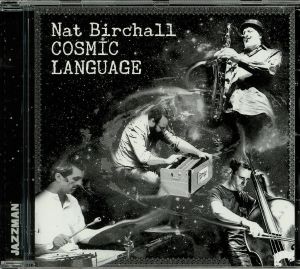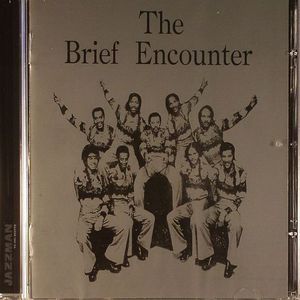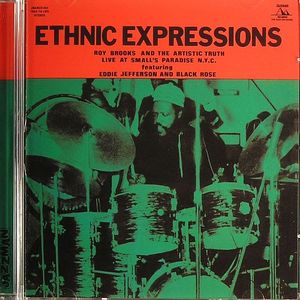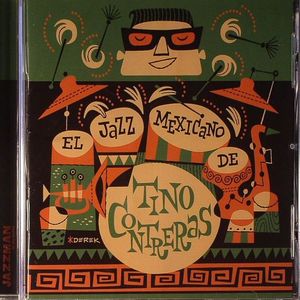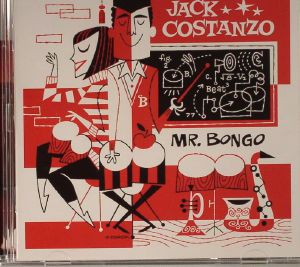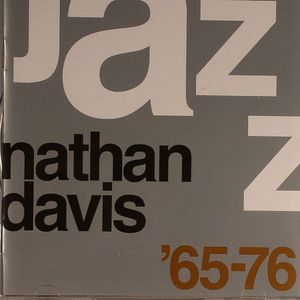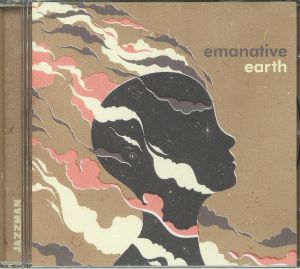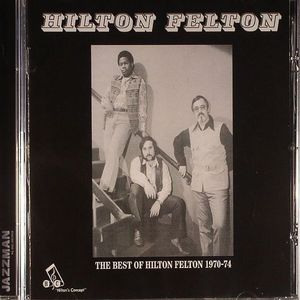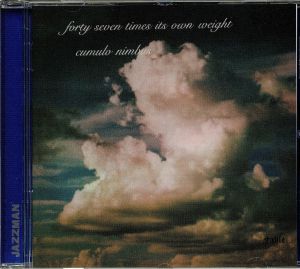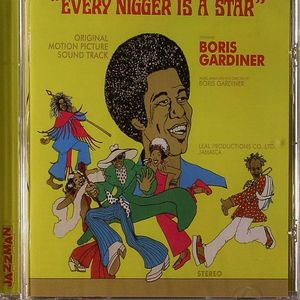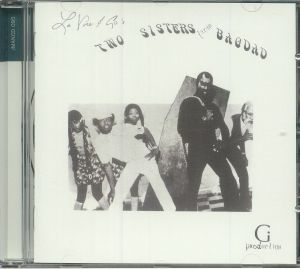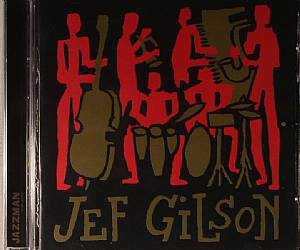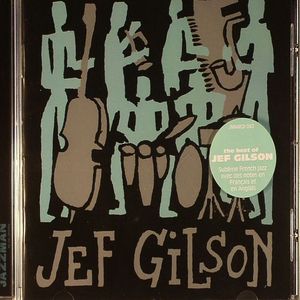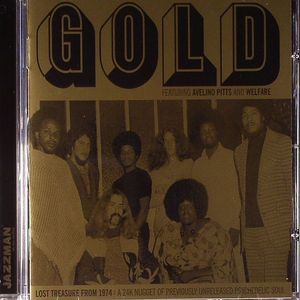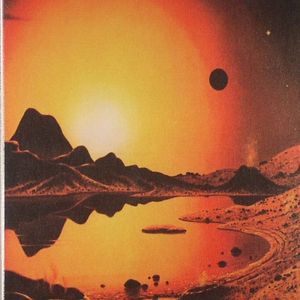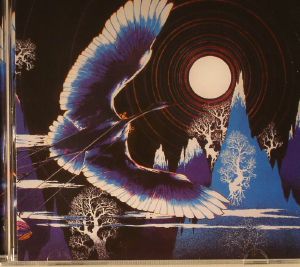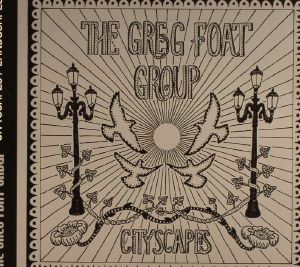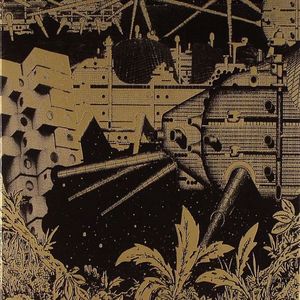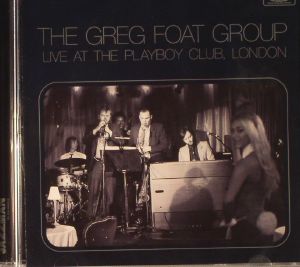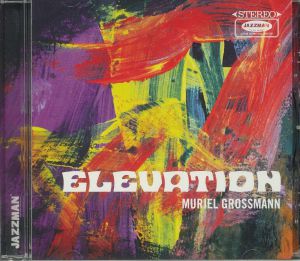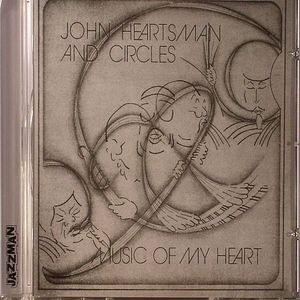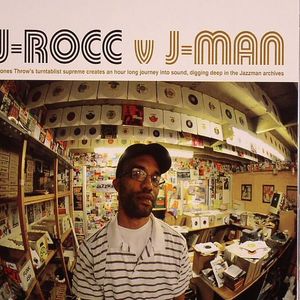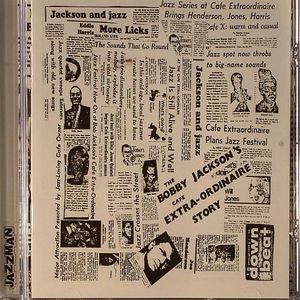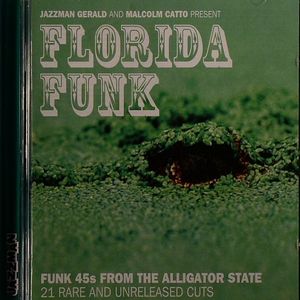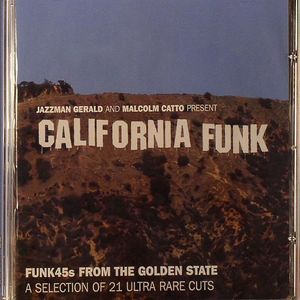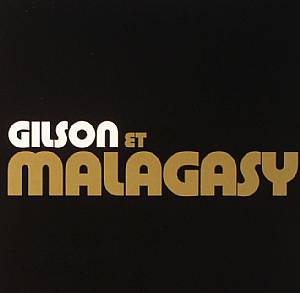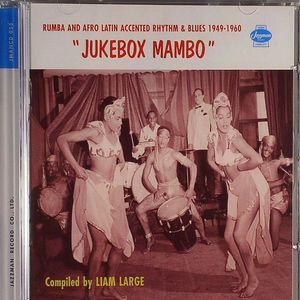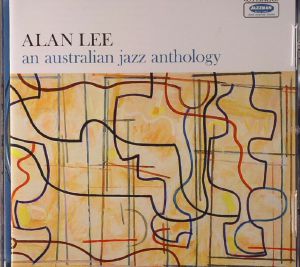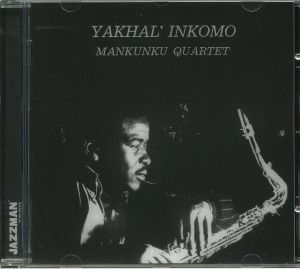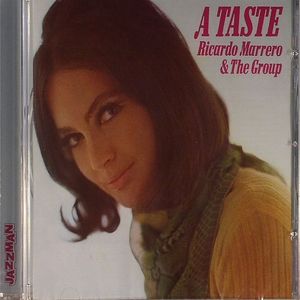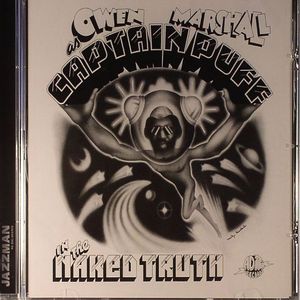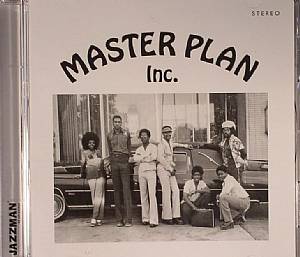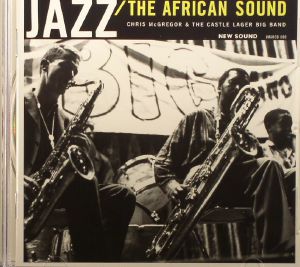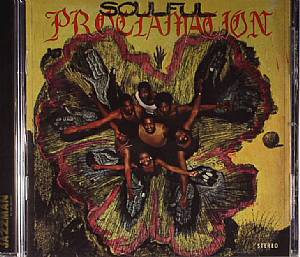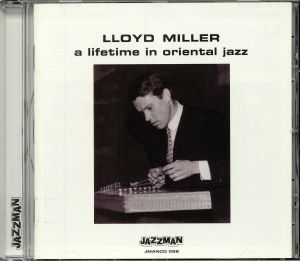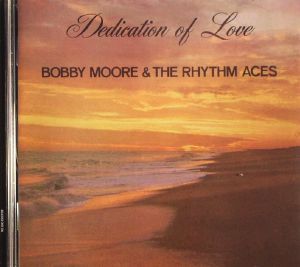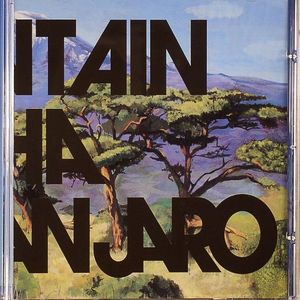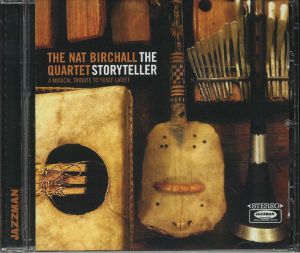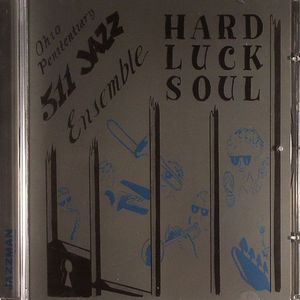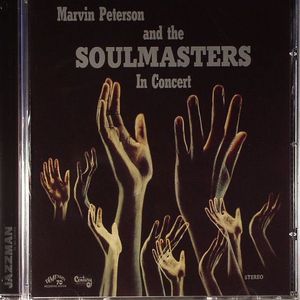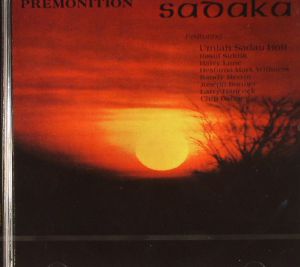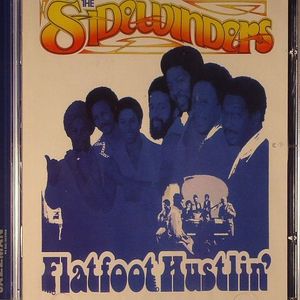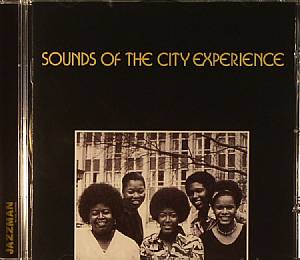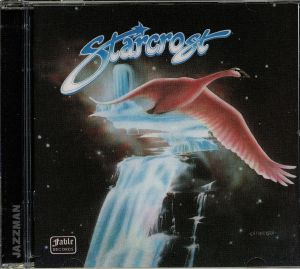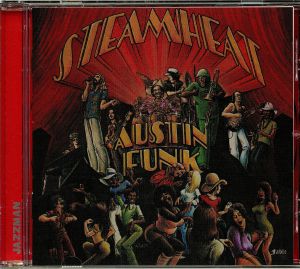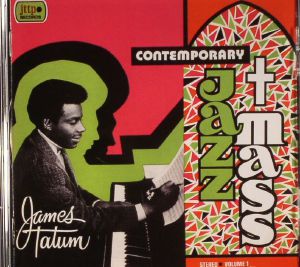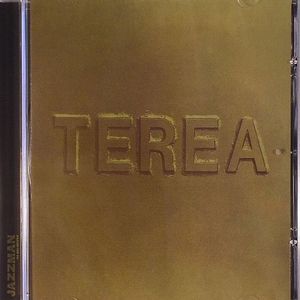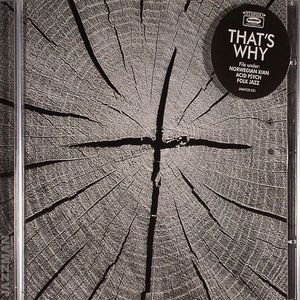Receive new release alerts for Jazzman
Jazzman レコード& CD
Browse the latest Vinyl & CD releases on JazzmanSimilar labels:
Review: On its original release in the 1980s, Azanyah's The One was only ever issued as a private press - meaning copies now change hands for upwards of $1000. Listening back to this remastered reissue, it's easy to see why it's held in such high regard. Offering a decidedly spiritual take on jazz infused with elements of folk and African music, The One offers a British take on the work of John Coltrane and Pharaoh Sanders with an uplifting twist. There's plenty to make you smile, from the anthemic uplift of "Guiding Light" and snaking clarinet of "Praise", to the freestyle space-jazz of "I Will Surely Come Again".
… Read moreout of stock $13.44
Review: On his latest full-length excursion, British jazzman Nat Birchall has taken the bold move of replacing a piano with a harmonium. The move is reflective of his growing interest in the drone-heavy sound of Indian classical music, with the Harmonium's wheezing, modulating, held-note sound adding an authentically meditative feel to the album's raga-inspired spiritual jazz movements. Naturally, there are harmonium solos, too, and these dizzying, accordion-esque interludes, combined with freestyle drum solos, Birchall's distinctive sax playing and adventurous double bass parts, help to create a genuinely psychedelic and spiritual mood. It's adventurous stuff, but also hugely engaging and entertaining.
… Read morePlayed by: Jazzman/Juke Box Jams/Soul/Jazz45
out of stock $13.44
Played by: Jazzman/Juke Box Jams/Soul/Jazz45
out of stock $13.44
Cat: JMANCD 034. Rel: 07 May 10
Funk
Played by: Ennio Styles, Jazzman/Juke Box Jams/Soul/Jazz45
out of stock $13.44
out of stock $6.71
out of stock $21.87
out of stock $13.44
Review: For one reason or another, this is Emanative's debut for London's Jazzman imprint, with the artist having touched most other like-minded labels thus far. Better late than never, we say! It also marks Nick Woodmansey's fourth studio album to date, having travelled through Space and Time, and now landing firmly on Earth. As you'd expect, mystique and experimentation are very much a core part of this LP, morphing at every turn, shifting unpredictably amid jazz flutes, deep cello bass, and a supremely sporadic drumming aesthetic that perfectly encapsulates the 'free' element of jazz. The electronics play a part too, however, adding a noticeable aura to an already atmospheric selection of sonic patterns. A beauty, from start to finish.
… Read morePlayed by: Jazzman/Juke Box Jams/Soul/Jazz45
in stock $7.01
Played by: Jazzman/Juke Box Jams/Soul/Jazz45
out of stock $13.44
Review: Jazzman's dusty-fingered diggers recently did a deal to reissue some of the "holy grail" albums released by Austin-based Fable Records in small numbers back in the early 1970s. Forty Seven Times Its Own Weight's "Cumulo Nimbus" is the first of these. It's a pleasingly warm and evocative set of tracks from the one-album combo that offers an enjoyable and cutting edge fusion of hard-wired jazz-funk, post-modal fusion, horizontal slow jams and low-slung goodness that pairs free-jazz style solos and spiritual grooves with just the right amount of funk-fuelled instrumentation (see "Jig"). The set includes both dancefloor-friendly and laid-back fare, with the jaunty title somehow managing to tick both boxes at once.
… Read morePlayed by: Jazzman/Juke Box Jams/Soul/Jazz45
out of stock $7.58
out of stock $13.44
Played by: Jazzman/Juke Box Jams/Soul/Jazz45
out of stock $7.84
Played by: Jazzman/Juke Box Jams/Soul/Jazz45
out of stock $13.17
Played by: Jazzman/Juke Box Jams/Soul/Jazz45
out of stock $13.44
Gold: Lost Treasure From 1974: A 24K Nugget Of Previously Unreleased Psychedelic Soul (CD +12 page booklet)
Cat: JMANCD 044. Rel: 01 Dec 11
Funk
out of stock $13.44
Cat: JMANCD 054. Rel: 30 Nov 12
Broken Beat/Nu Jazz/Nu Soul
Review: Since first pitching up on Jazzman in 2011, eight-piece psychedelic jazz combo The Greg Foat Group has caused something of a stir. This second album for the crate-digging specialists is every bit as good as their debut full length, Dark Is The Sun. At times, it sounds like Ennio Morricone and Harold Budd making loose jazz-breaks, at others an almighty freak-out in the company of Afro-busting Blaxploitation detectives. There are quietly beautiful moments ("Girl & Robot With Flowers Part 3"), straight-up late night jazz movements ("For Breath A Tarry", "Cast Adrift"), and breezy, vibraphone-heavy '60s grooves ("The Girl & Robot With Flowers Part 5"). Throughout, it's beautifully played and lovingly produced, with Foat's impeccable piano playing taking centre stage.
… Read moreout of stock $14.02
Review: The Greg Foat Group likes to keep busy. Following hot on the heels of their fantastic Live at the Playboy Club, London set - a particularly potent recording of the jazz ensemble at their best - comes their first studio album since 2012. Like its predecessor, Girl & Robot With Flowers, Dancers at the Edge of Time is a suitably spiritual, out-there affair, with wild horn lines and fizzing rhythms supplemented by atmospheric strings and oodles of post-production effects. While there are plenty of impeccably beautiful downtempo numbers - see the near-perfect "Hygela" and the intricate piano work of "The Eye of the Horus" - it's the up-tempo workouts that make the biggest impression. "Riff For Raff" and "The Hunt", in particular, are brilliant.
… Read morePlayed by: Jazzman/Juke Box Jams/Soul/Jazz45
out of stock $11.21
Cat: JMANCD 086. Rel: 25 Apr 16
Jazz
out of stock $12.89
out of stock $13.44
Cat: JMANCD 071. Rel: 20 Nov 14
Broken Beat/Nu Jazz/Nu Soul
Review: The Greg Foat Group are arguably one of Britain's most potent jazz combos of recent times - a fact that no doubt helped them secure a residency at the Playboy Club in Mayfair, London. Those who've seen them live will confirm their quality; while their recorded output is very good, in pales in comparison to their performances. It's good to see, then, that they've finally got round to recording a live album. Recorded straight to tape over two nights earlier in the year, Live at The Playboy Club sees them fusing soundtrack-influenced jazz grooves with modal wig-outs in front of a rapturous audience. As live albums go, it's particularly atmospheric. More importantly, it's arguably their strongest set to date.
… Read morePlayed by: Jazzman/Juke Box Jams/Soul/Jazz45
out of stock $10.66
Review: Since emerging at the dawn of the century, Vienna-raised saxophonist and singer Muriel Grossmann has released a dozen albums that fuse her European jazz heritage with everything from modernism and free-jazz, to Afro-jazz and classic spiritualism. "Elevation", a vinyl-only release, sees her debut on Jazzman with a bold and vibrant set that flits between wild, free-jazz-meets-spiritual jazz epics ("Elevation"), more considered spiritual workouts (the Ornette Coleman-ish "Rising"), double bass-heavy soundscape jazz (the foreboding but brilliant "Chant"), bouts of laidback, sun-kissed positivity ("Your Pace") and emotion-rich languid jazz bliss (closing cut "Peace For All", where Grossmann is in particularly fine form).
… Read morePlayed by: Juno Recommends Jazz
out of stock $13.44
Played by: Paolo scotti, Jazzman/Juke Box Jams/Soul/Jazz45
out of stock $13.44
out of stock $13.44
out of stock $13.44
Review: The selection represents the diversity and vibrancy of Florida itself - a state that is half Havana and half dirty south, but 100% funky!
… Read morePlayed by: Jazzman/Juke Box Jams/Soul/Jazz45, Yaaba Funk
out of stock $7.01
Played by: Funkshone, Jazzman/Juke Box Jams/Soul/Jazz45
out of stock $13.44
Gilson Et Malagasy (stereo) (Record Store Day 2014) (4xCD box set + 20 page booklet)
Cat: JMANCD 065. Rel: 29 Apr 14
Jazz
Played by: AfroBase (Radio Chart)
out of stock $17.94
Liam LARGE / VARIOUS
Jukebox Mambo: Rumba & Afro-Latin Accented Rhythm & Blues 1949-1960 (unmixed CD + 16 page booklet)
Cat: JMANCD 055. Rel: 22 Nov 12
Jazz
out of stock $13.17
Played by: Jazzman/Juke Box Jams/Soul/Jazz45
out of stock $7.29
out of stock $15.14
Played by: Ennio Styles, Jazzman/Juke Box Jams/Soul/Jazz45
out of stock $13.44
out of stock $13.44
out of stock $12.89
Cat: JMANCD 080. Rel: 14 Jan 16
Jazz
Review: Jazzman describes Jazz/The African Sound as a "lost global jazz classic". Certainly, it's an important record. Recorded in 1963 by Chris McGregor's short-lived Castle Lager Big Band outfit - a 17-piece jazz ensemble that included both black and white musicians, at a time when Apartheid was at its' height - it's long been regarded by collectors and those in the know as one of the best jazz records ever to be made in Africa. Some 53 years after it first slipped out in South Africa, it's finally getting a global release. Built around modernist jazz compositions from South African composers - a rarity at the time - Jazz/The African Sound remains a thrilling, daring and hugely enjoyable set.
… Read moreout of stock $14.30
Played by: Jazzman/Juke Box Jams/Soul/Jazz45
out of stock $12.89
out of stock $9.53
out of stock $12.06
out of stock $13.44
Cat: JMANCD 115. Rel: 12 Sep 19
Jazz
Review: Turning your hand to the catalogue of a jazz colossus like Yusef Lateef would be beyond most contemporary jazz musicians, but then Nat Birchall is currently one of the best saxophonists in the business. Alongside his quartet and with the aid of some unusual instruments from around the world - something Lateef was famously fond of doing - Birchall has delivered a set of covers that breathe breezy new life into some of the American multi-instrumentalist's most admired compositions whilst retaining some of the original flavour. Our favourites include the droning North African brilliance of "Mashariki", the sun-baked afternoon breeze of "Ringo Oiwake" and the piano-powered bliss of "Willow's Walk".
… Read morePlayed by: Ex-Friendly (Truth & Lies Music)
out of stock $14.57
Played by: Jazzman/Juke Box Jams/Soul/Jazz45
out of stock $13.17
Played by: Jazzman/Juke Box Jams/Soul/Jazz45
out of stock $12.89
You Make The Sunshine
Black Encounters
Outer Space Blues
Children Of The Universe
African Violet
Nights In Satin
Premonition
Played by: Jazzman/Juke Box Jams/Soul/Jazz45
out of stock $14.07
Played by: Craig Charles Funk And Soul
out of stock $13.44
Played by: Ennio Styles, Jazzman/Juke Box Jams/Soul/Jazz45
out of stock $13.44
out of stock $19.35
Review: For the 30th volume in the label's ongoing "holy grail" series of rare jazz reissues, Jazzman has once again mined the vaults of obscure Texan label Fable Records. Starcrost was a short-lived six-piece whose members included trumpeter Mike Mordecai, the man who founded Fable in part to get the band's music onto wax. Their self-titled 1975 debut album has long been a favorite of crate-digging jazz-funk and soul-jazz heads, so this reissue is long overdue. It features a mixture of sweet and soulful vocal numbers, solo-rich instrumental workouts and heady cuts that throw suitably spiritual influences to the band's fizzing, funk-fuelled take on mid '70s jazz.
… Read morePlayed by: Jazzman/Juke Box Jams/Soul/Jazz45
out of stock $12.62
Review: Over the last few weeks, Jazzman's ongoing "Holy Grail" reissue series has focused on obscure but in-demand albums from the Fable Records catalogue. The latest to get the deluxe reissue treatment is Steamheat's "Austin Funk", a 1975 set that's notably harder and funkier than the Texan label's usual jazz-funk fare. Of course, there are still plenty of jazz-funk flourishes to be found amongst the soulful vocals, crunchy clavinet lines, fast-tempo grooves and heady horn lines. Our picks include the low-down deep funk headiness of "Radiator", the fizzing brilliance of "Body Talk", the harmonic jazz guitar, horn and electronic piano solos of "Ghetto Tool" and the eyes-closed, in-the-zone madness of closing cut "Frozen Tundra Lady".
… Read morePlayed by: Jazzman/Juke Box Jams/Soul/Jazz45
out of stock $7.58
out of stock $15.14
Played by: Jazzee Loudness, Jazzman/Juke Box Jams/Soul/Jazz45
out of stock $13.44
Cat: JMANCD 051. Rel: 27 Sep 12
Broken Beat/Nu Jazz/Nu Soul
Played by: Jazzman/Juke Box Jams/Soul/Jazz45, The Jazz Meet
out of stock $13.44

 USD
USD






